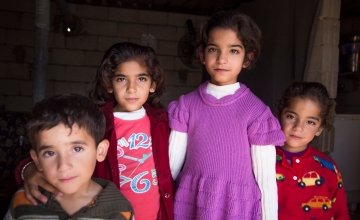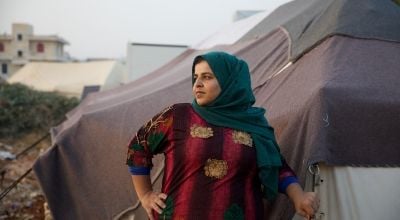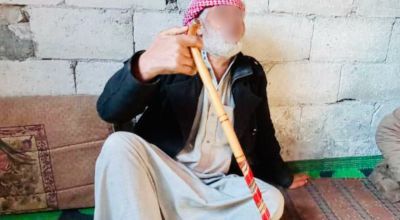
Read our 2023 annual report

Knowledge Hub
Failure to protect Syrians brings shame on the world

Powerful nations have let down the people of Syria – but we cannot turn away from diplomacy.
Right now civilians in the Syrian city of Aleppo face constant attack. They know each day could see them buried in rubble, or left dying in the ruins of a bomb-damaged hospital. The bombing over the last few days has been described as Aleppo’s Armageddon and compared to the complete destruction of Stalingrad. The world was shocked and outraged when aircraft bombed a UN and Red Crescent aid convoy last week, killing at least 20 people. But bombings are a fact of daily life in Aleppo, including ‘double tap’ airstrikes targeting those going to help people injured in earlier attacks.
Every blood-soaked day brings more shame to the international community – particularly the UN Security Council, the group that’s supposed to maintain international peace and security. At the end of the Second World War, the UN was established precisely to stop conflicts descending into the sort of long running, multi-country disaster the Syria crisis has become.
The UN Security Council has five permanent members, US, UK, France, Russia and China, all with a right to veto actions suggested by other members. But rather than leading the peace process, the majority of these five are actively involved in the war, bombing Syrians or backing particular fighting groups. Indeed, in Aleppo today members of the council are breaking the very laws they are supposed to uphold, with the other members seemingly powerless to stop them. Has this scandal destroyed the credibility of the entire international community?
A futile cycle of violence and misery
Amid this carnage, a few brave doctors and aid workers are risking their lives to bring help. The international community is funding some support for the people of Syria – although not all the money promised has arrived. UN negotiators do their best to bring the warring parties, and their sponsors, to the negotiating table. But, ultimately, the international community is failing the people of Syria. This is not news to the Syrians. Indeed, it’s not really news to the international community. Earlier this year, UN aid chief Stephen O’Brien told a meeting of the UN General Assembly:
We must show the people of Syria that the world has not forgotten them… Not through more words of solidarity, but through immediate and concrete political action that brings an end to this futile cycle of violence and misery.
It is the narrow focus of the world’s most powerful countries on their own strategic interests, at the expense of protecting innocent civilians, that enables the conflict to continue. This sends out a message way beyond Syria, that conflict and human rights violations are acceptable, and that powerful countries can fight proxy wars against each other with foreign civilians as ‘collateral damage’. And it tells the world that horrific acts of violence will go unpunished.
Countries must work together to bring peace to Syria
Despite the horrific failure in Aleppo, we cannot abandon the idea of countries working together to bring peace. The UN must be stronger, more decisive and be able to act quickly to prevent conflicts from escalating. Could the Syria crisis have been prevented? Yes, says Charlie Flanagan, Ireland's Minister for Foreign Affairs, if the five permanent members of the security council had acted decisively at the outset. But as Kofi Annan, the original UN Syria envoy trying to negotiate a peace deal, has pointed out, they were as hopelessly divided then as they are now.
All of us need to push our leaders to use their influence to help find a peaceful end to the war. Perhaps we also need to reform the Security Council so that the narrow strategic interests of a few powerful countries are never again allowed to override the need to protect vulnerable civilians. After all, isn’t that what the UN was set up to do?
In the meantime, aid agencies like Concern will keep doing what they can to deal with the human costs of the conflict: more than 10 million people displaced from their homes, millions within Syria in need of food and medicine, and millions more in neighbouring countries needing shelter, education and the chance to earn a living to provide for their families.
Donate to Concern
We could not do our life-saving work around the world without your support.





